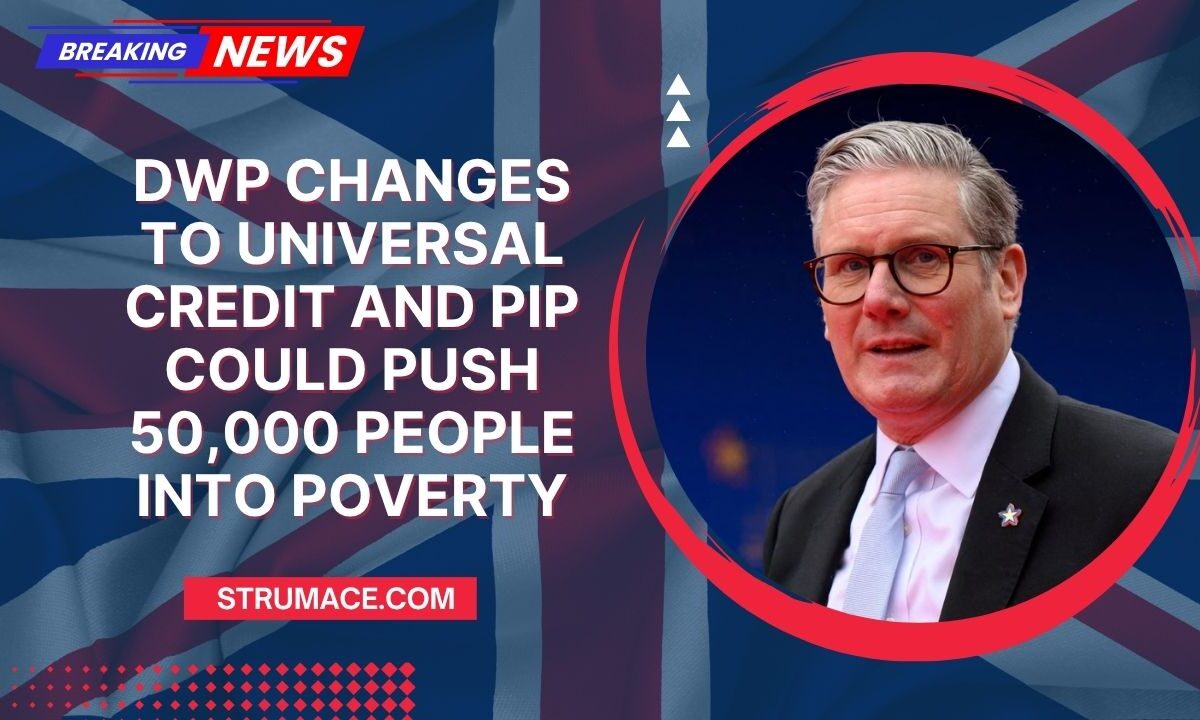Nearly 50,000 disabled and chronically ill individuals receiving support from the Department for Work and Pensions (DWP) could face poverty by the end of the decade due to significant reductions in incapacity benefit.
Labour Government Revises Disability Welfare Plans
Although the Labour Party has walked back much of its proposed welfare reform, concerns remain among MPs regarding the long-term impact of the changes. Amid pressure and a near parliamentary revolt, the government withdrew some of the most controversial reforms.
However, despite these adjustments, starting next year, Universal Credit claimants who have a limited capacity for work—excluding those with severe or terminal health conditions—will see a sharp reduction in their monthly payments. The current support of £423.27 per month will be reduced to £217.26, marking a cut of nearly 50%.
Committee Raises Red Flags Over Welfare Reform
Debbie Abrahams, Chair of the committee and Labour MP, acknowledged the government’s concessions but warned of continuing concerns.
“We appreciate the changes to the Universal Credit bill,” she said, “but serious issues remain—particularly around the financial support being withdrawn from newly disabled and sick individuals.”
She emphasized that 50,000 claimants who begin receiving DWP benefits after April next year due to new or worsening health conditions will be at significant risk of poverty by 2030.
Call for Delay in Cutting Universal Credit Health Premium
Abrahams urged the government to postpone the reduction in the health premium, citing the absence of complementary support systems such as expanded NHS capacity, employment assistance, and labour market changes designed to help people remain employed.
She stressed the importance of a fair and sustainable welfare system, highlighting the need to safeguard the wellbeing of vulnerable individuals during transitions. “We must assess the consequences of policy shifts related to health benefits before implementation,” she warned.
Concerns Over Impact on Young People
The committee also criticized the decision to cut entitlement for young people facing economic inactivity due to health conditions. The report stated:
“We understand concerns about youth economic inactivity, but this does not justify revoking access to Universal Credit health benefits.”
Government Defends Reforms as Pro-Work and Pro-Family
In response, a government spokesperson defended the changes, arguing that the welfare reforms are designed to encourage employment while preserving a safety net for those in need.
According to the impact assessment, the reforms will help lift 50,000 children out of poverty, and expanded employment support programs are expected to benefit more families. The government plans to invest £3.8 billion in employment support during this parliamentary term.
Officials also stated that adjustments to Universal Credit rates are aimed at eliminating disincentives that discourage claimants from seeking employment, while still offering genuine assistance to those with long-term disabilities.
Key Details of DWP Welfare Reform Changes
| Aspect | Details |
|---|---|
| Affected Claimants | 50,000 disabled or chronically ill individuals |
| Benefit Impacted | Incapacity Benefit under Universal Credit |
| Old Monthly Award | £423.27 |
| New Monthly Award (from 2026) | £217.26 |
| Estimated Risk | Claimants could fall into poverty by 2030 |
| Government Investment in Employment | £3.8 billion |
| Children Expected to Exit Poverty | 50,000 |
| Committee Recommendation | Delay benefit cuts until supportive policies in place |
Despite positive strides in removing the most controversial elements of disability welfare reform, the proposed DWP cuts to incapacity benefits still present serious risks. Up to 50,000 new claimants—many of whom are disabled or chronically ill—may face deepening financial hardship.
While the government emphasizes a balance between promoting employment and offering safety nets, critics urge a pause on cuts until supportive health and employment policies are fully implemented.
FAQs
Who will be affected by the DWP incapacity benefit cuts?
Only new Universal Credit claimants from April 2026 with limited work capacity (but not terminal or severe conditions) will be affected.
How much will the Universal Credit health premium be reduced by?
It will drop from £423.27 to £217.26 per month, nearly halving the financial support available.
Is the government planning any support to offset these cuts?
Yes, the government has pledged £3.8 billion in employment support and expects to lift 50,000 children out of poverty through broader reforms.
